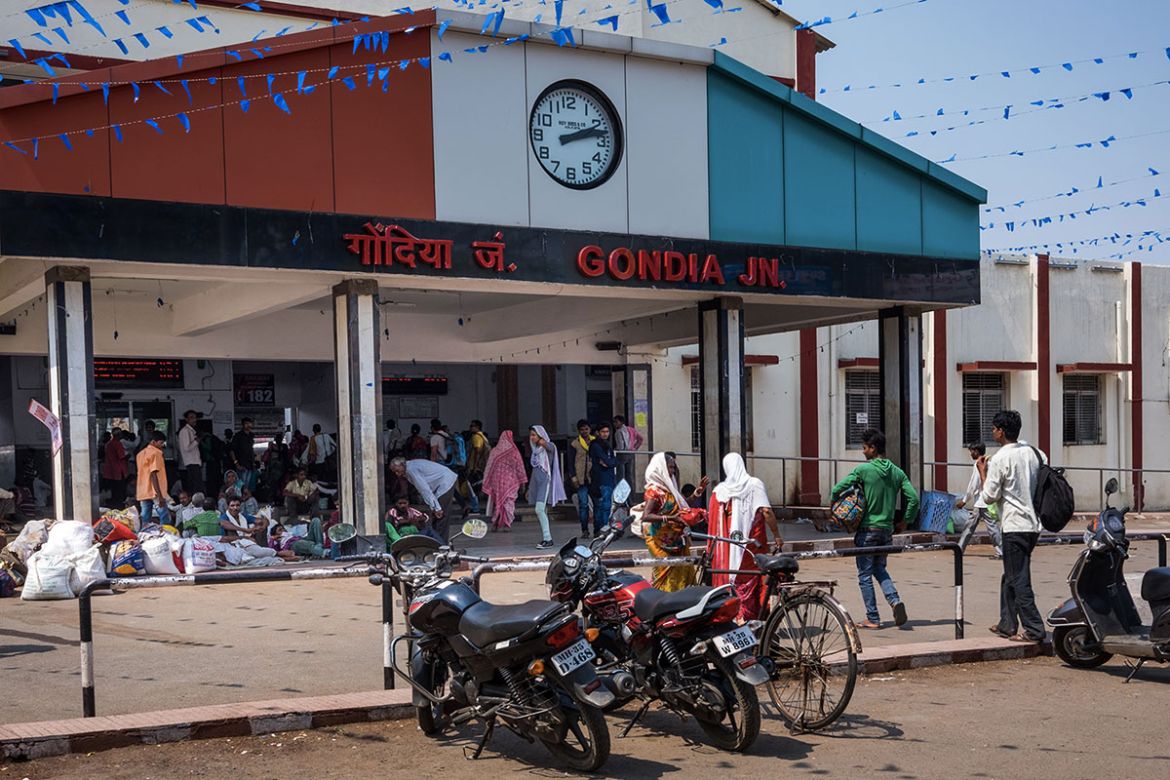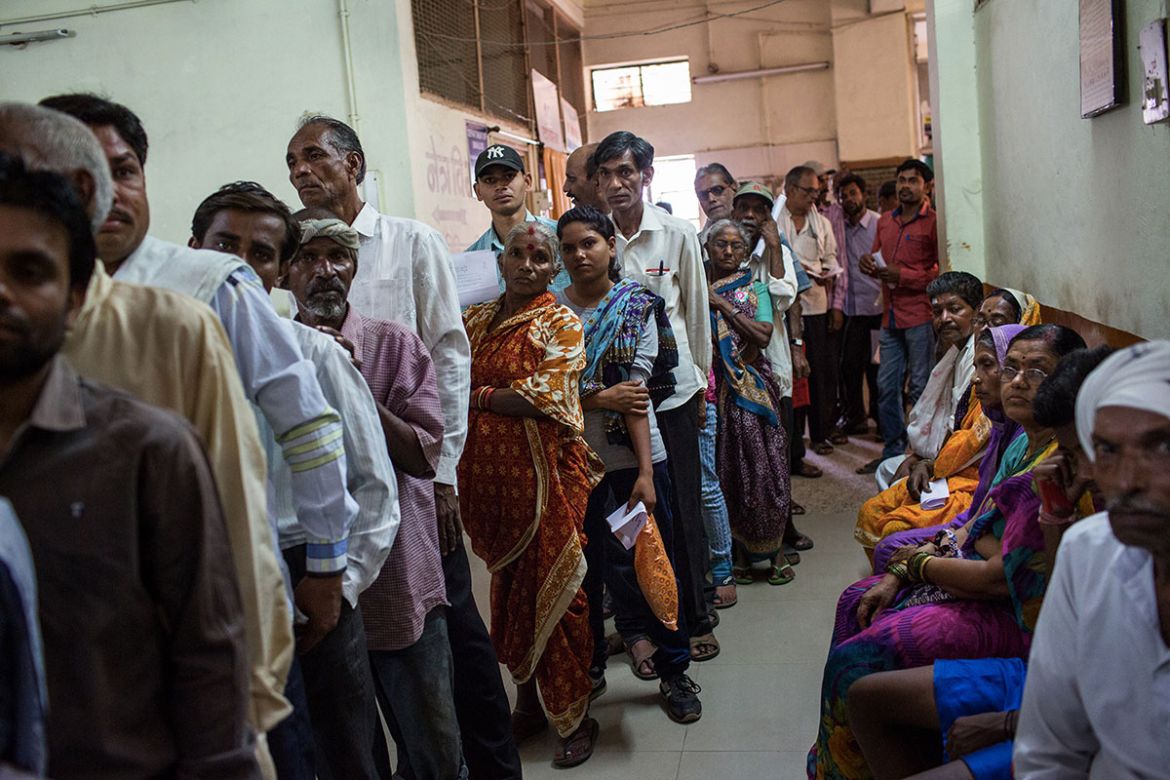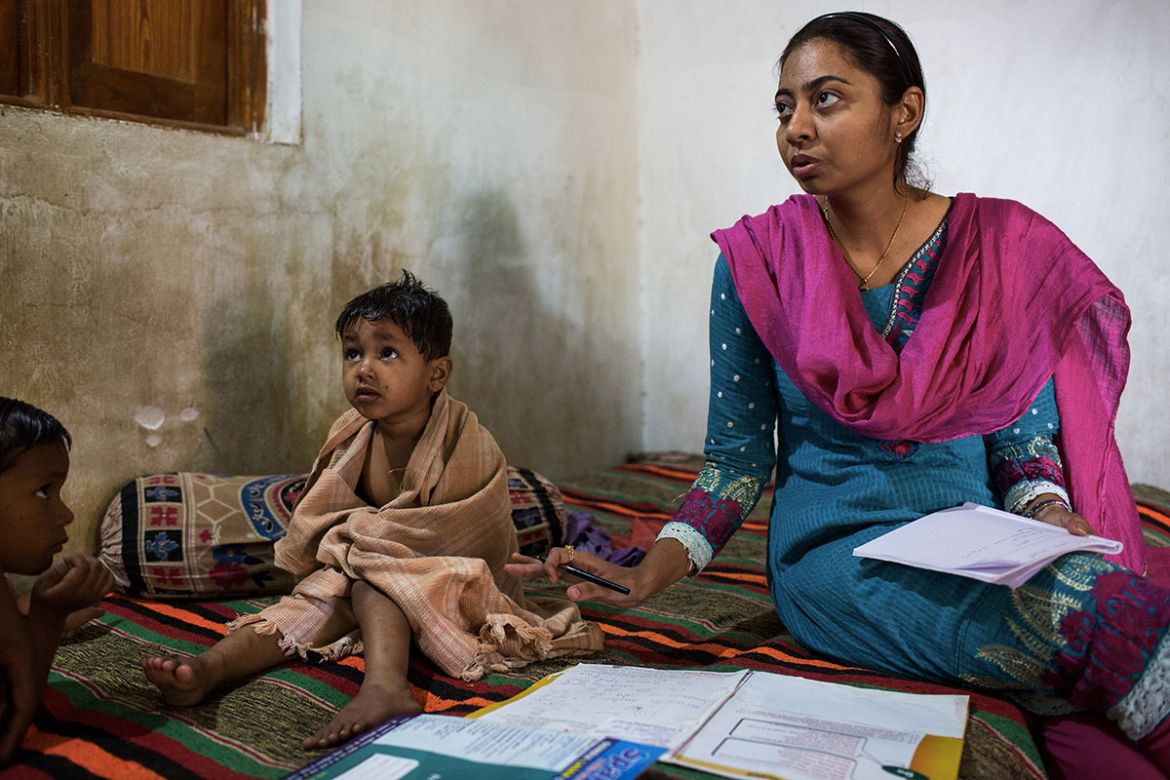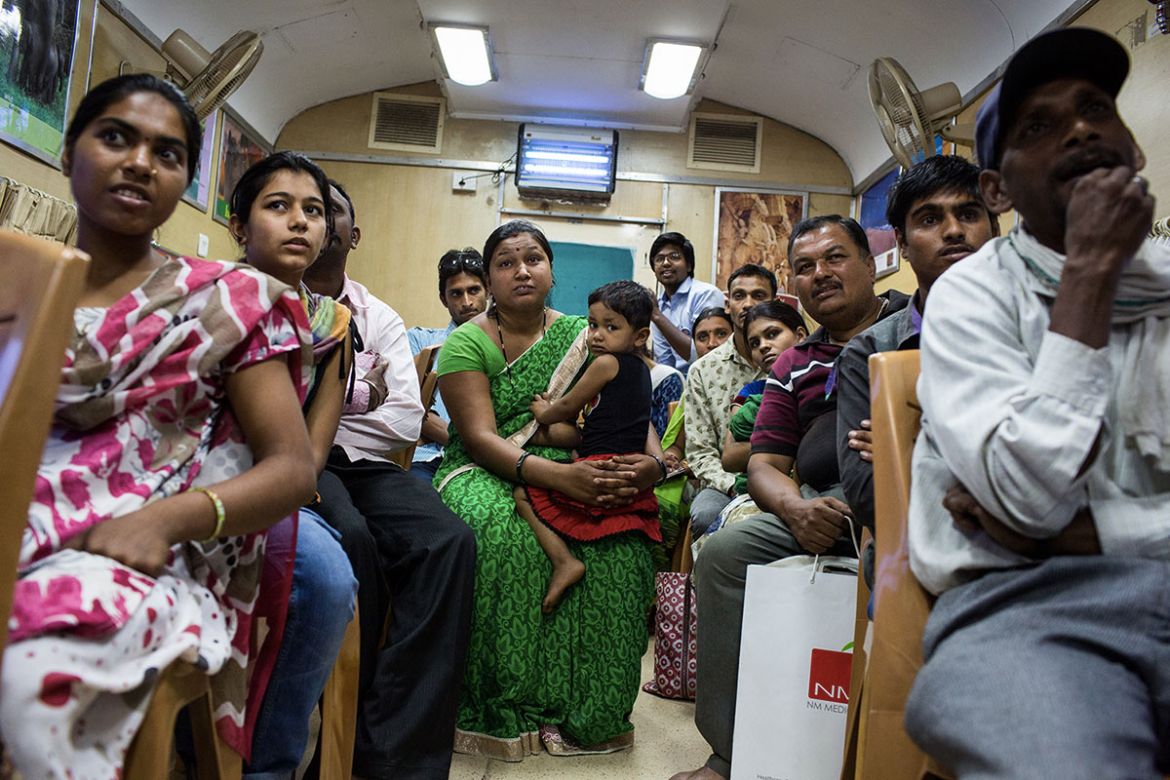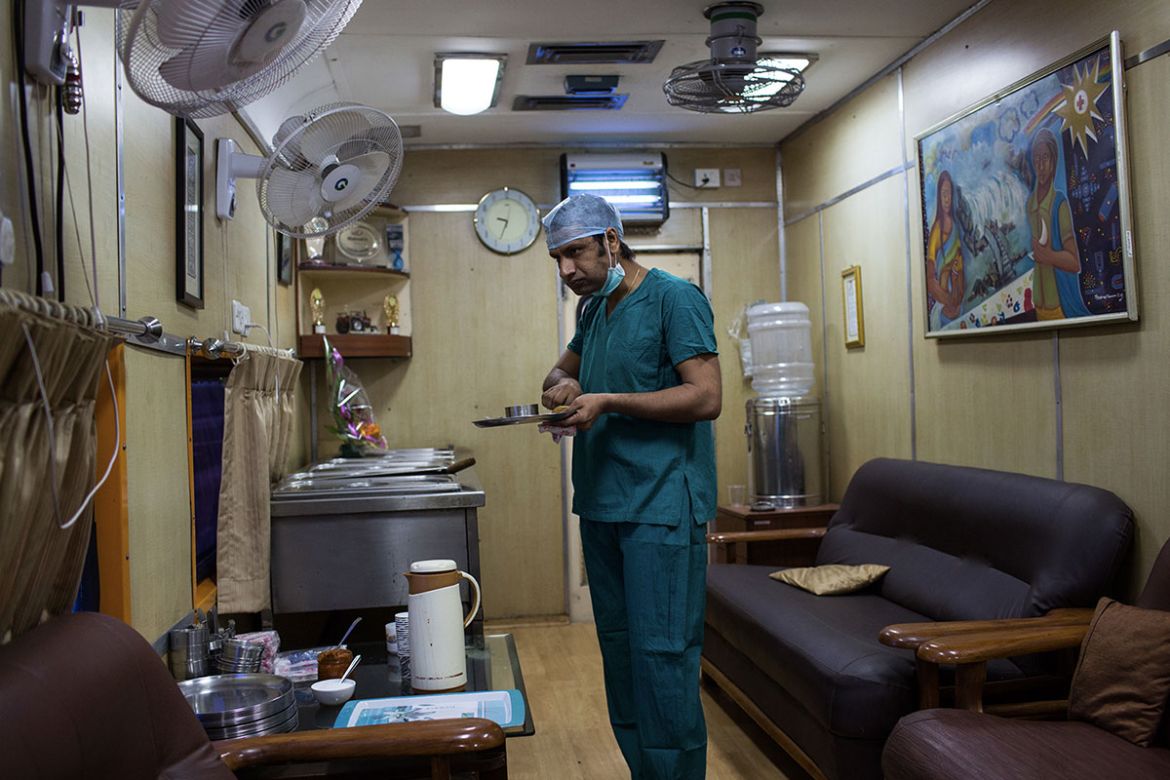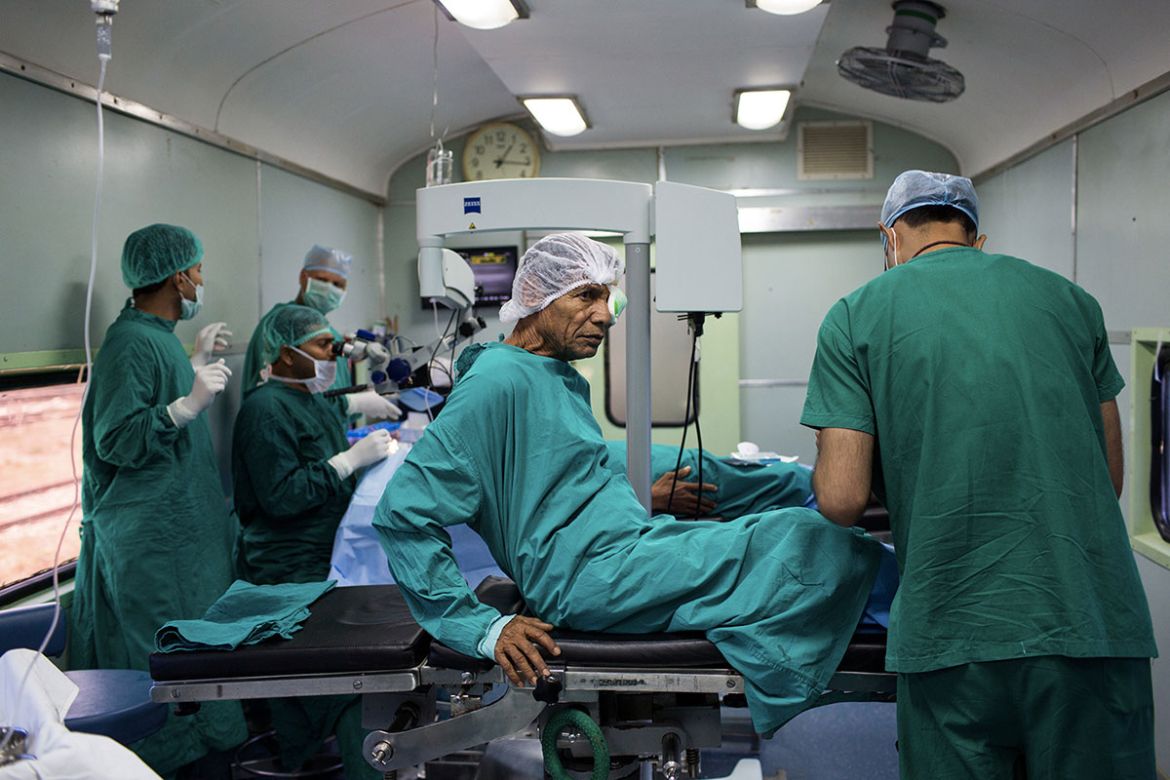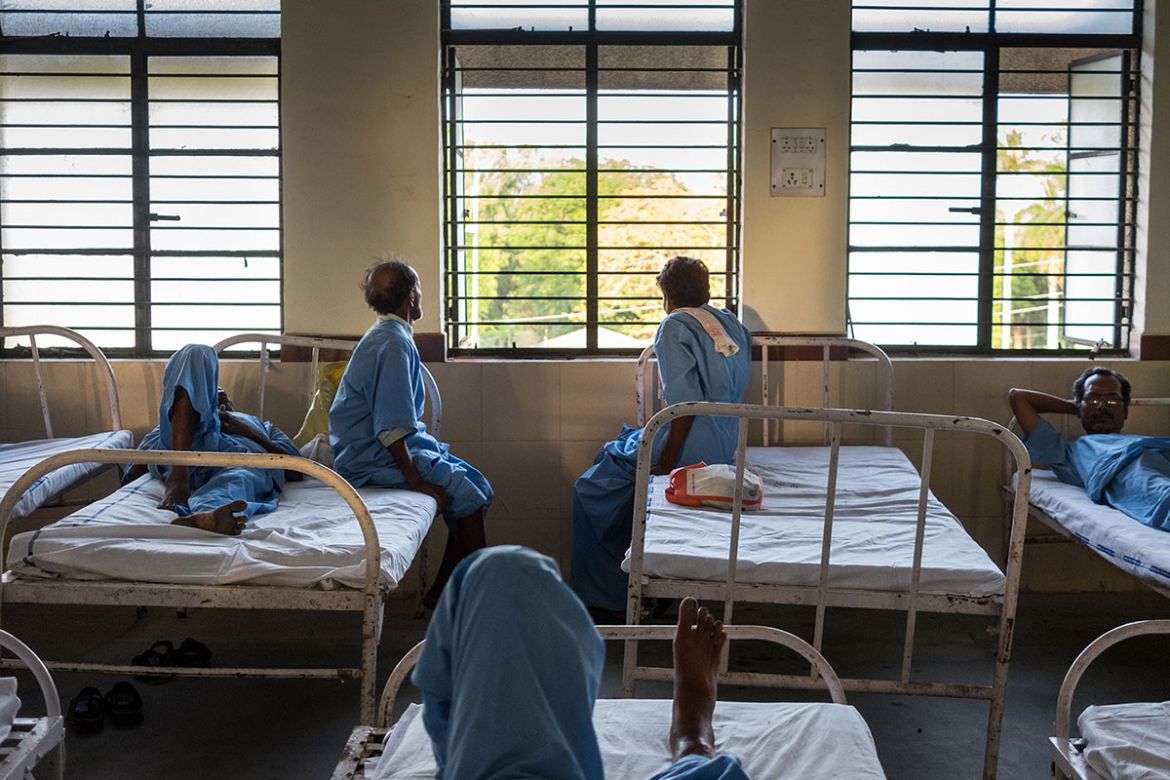In Pictures
A passage of hope on India’s hospital train
Medical specialists travel across the country to deliver healthcare to the underprivileged.

Gondia, India – For 25 years, the Lifeline Express has been travelling through India to bring health services to millions of Indians who are in need of surgery, treatment and diagnostics but have no access to medical care. The hospital train is their only hope for a cure.
The train is the flagship of Impact India Foundation, working in partnership with the Indian Railways.
In a meticulously orchestrated project, the best specialists in the country volunteer to travel thousands of kilometres to participate in missions and bedside care.
In April 2016, in the sweltering heat, the Lifeline Express spent four weeks in the heart of Gondia, a city of 176,000 mainly rice and tobacco farmers, located a 15-hour train ride northeast of Bombay.
There are fewer than 10 doctors to every 10,000 inhabitants in India, so many people must travel hundreds of miles to reach the nearest hospital.
While the country’s pharmaceuticals industry is a key supplier of generic medicines to the developed world, India lags behind in matters of sanitation and public health.
The hospitals in smaller cities such as Gondia often lack specialists and only provide basic care for patients.
Equipped with two fully functioning operating rooms, the doctors at Lifeline Express restore eyesight through cataract operations, correct cleft palates, and offer dental services for hundreds of people, among other treatments.
